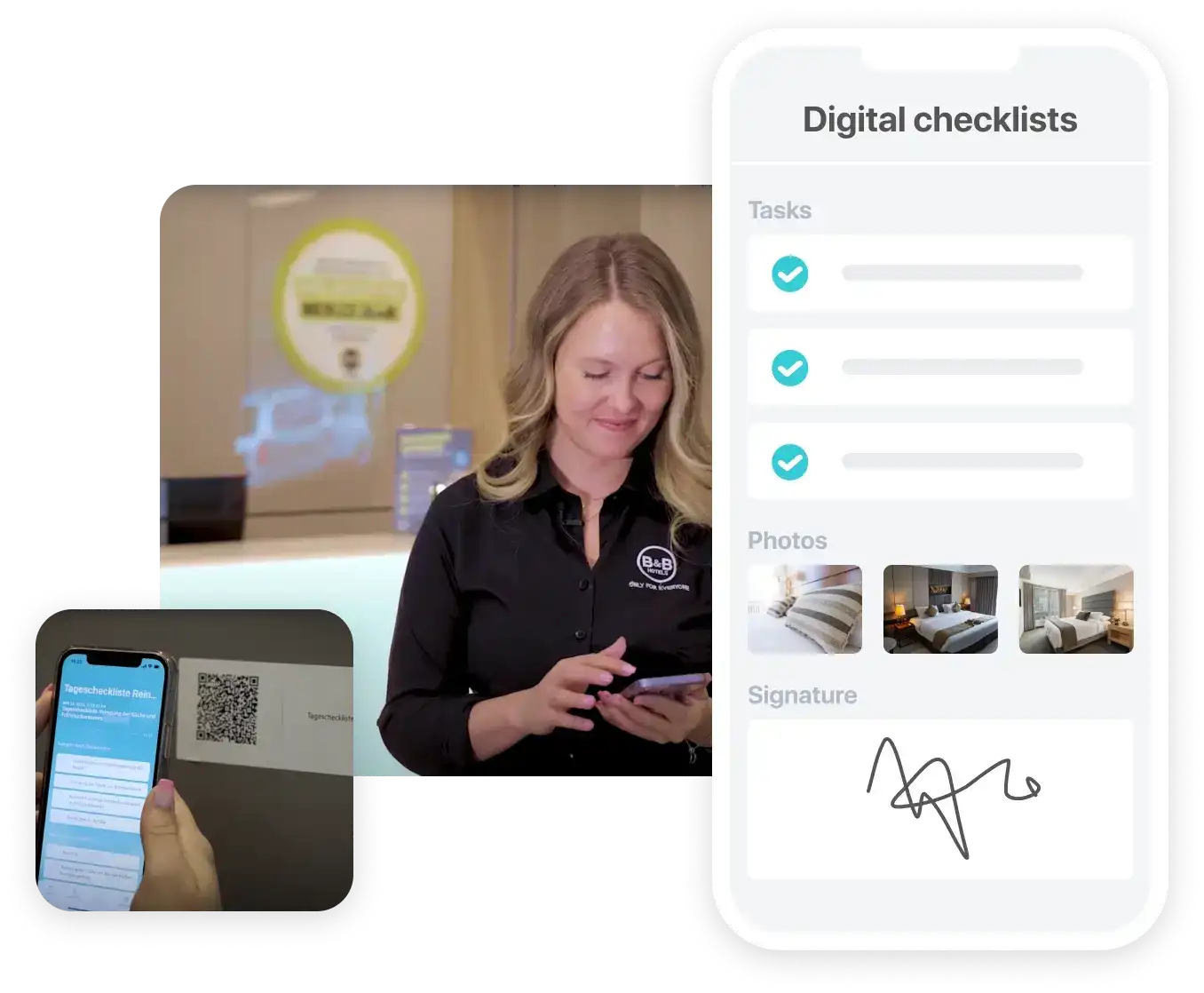Use of checklists in
hotels & hospitality
Improve guest satisfaction and elevate overall service quality with digital checklists
Inconsistent service
Room cleaning, checking in guests, and food preparation are just some of the processes that need to be repeated over and over to keep hotels and hospitality businesses running smoothly.
Without checklists, it’s difficult for hospitality businesses to maintain good, consistent standards. And if things get missed, it can have a direct effect on the customer experience.
Reusable hotel checklist templates
If you use Jira or Confluence for facilities management, internal procedures, or policy documentation, then you could use Didit to create checklists in your instance. Here’s what you can do:
- Ensure nothing gets missed with hotel checklist templates that can be reused over and over
- Make a brand new template or choose from our bank of template examples
- Copy and paste existing checklist templates into Didit from a Word document, PDF, Confluence page or Jira issue description – and save them as new templates
- Use the Didit for Confluence app to automatically create a checklist from the content in a Confluence page


Slow and inefficient checklist management
Many hotels are already using checklists, but they’re not live documents integrated with the hotel’s systems.
Others use paper-based lists, which are even harder to track. These also waste resources, needing to be printed, scanned, filed, and often manually inputted into a different system.
Live, integrated checklists
It’s super-easy to manage, track, and report on your checklists and checklist templates with Didit. Here’s why:
- Didit checklists live online in your Jira and Confluence instances
- If you use Confluence AND Jira, your checklists are automatically synced between the two
- Didit checklists can be attached to Jira issues or published on Confluence pages, or created and managed independently in the Didit hub
- You can view usage statistics about your templates and checklists
- You can export single or multiple checklists as PDFs, which is useful for auditing, compliance, and checking on progress.
Not having checklists to hand
If workers don’t have access to checklists on their phones, how can they know what they need to do while they’re doing it?
If you use checklists in Jira or Confluence, many of your workers won’t have access to your instance. But buying extra Atlassian licenses just so they can fill out checklists seems like unnecessary expense. Plus, housekeeping staff and repair workers change a lot, so managing their accounts would be a nightmare.
Checklist access without logging in
The great thing about Didit checklists is that your users don’t need to have access to Jira or Confluence to use them. You can:
- Provide housekeepers, repair workers, and IT technicians with a link or QR code to scan on their phones and get instant access to a live checklist without logging in
- Workers can complete a checklist right there in their browser, or use the Didit mobile app for an even smoother experience.
Please see our documentation for how to use Didit checklists in hotel management.



